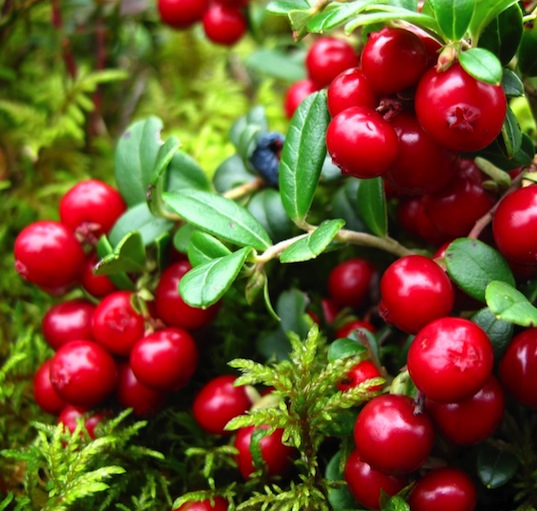

Vaccinium Vitis-idea, commonly called lingonberry, is a short, mat-forming, evergreen shrub native to boreal pine forests, rocky barrens, bog edges, heaths, arctic tundra, and mountain slopes in the northern reaches of Europe, Asia, and North America. Mature plants will reach up to 1' tall and spread by underground rhizomes to form colonies 3' wide or more. The glossy, dark green, oval leaves are held on thin, wiry stems and can reach around 0.5" long and 0.25" wide. Loose, terminal clusters of 3-10 small, nodding, white to pink blushed, urn-shaped flowers bloom in spring and are followed by small, bright red, round, tart berries. The berries are eaten by birds including grouse, ravens, and migrating songbirds as well as mammals including voles, chipmunks, foxes, and black bears. The foliage is an important winter food source for moose, caribou, and hares.
| Requirement | |
|---|---|
| Hardiness | 3,4,5,6,7,8 |
| Heat Zones | 3,4,5,6,7 |
| Climate Zones | 3, 4, 5, 6, 7, 8 |
| Plant Type | Shrubs |
| Plant Family | Ericaceae |
| Exposure | Full Sun, Partial Sun |
| Season of Interest | Spring, Fall, Winter, Early Spring, Mid Spring, Late Spring |
| Height | 1' - 2' |
| Spread | 1' - 2' |
| Water Needs | Average |
| Maintenance | Average |
| Soil Type | Well Drained, Loam, Acid |
| Characteristics | Showy, Fruit & Berries, Attracts Butterflies |
| Garden Styles | City and Courtyard, Coastal Garden, Gravel and Rock Garden, Informal and Cottage, Traditional Garden |
| Planting Place | Edging, Ground Covers, Patio and Containers, Underplanting Roses and Shrubs |